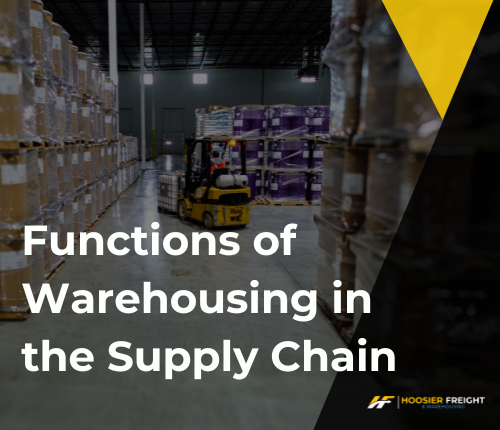
What are the Benefits of Warehouses?
In the sophisticated realm of Freight and Warehousing, the multifaceted importance of warehousing cannot be overstated. Acting as the backbone of supply chain operations, warehouses do more than store goods; they are strategic assets that ensure the seamless flow of goods from suppliers to customers, significantly impacting business efficiency and market responsiveness.
Why is a Warehouse So Important?
Warehouses are the cornerstone of effective supply chain management, pivotal for balancing supply and demand, and facilitating the smooth transition of goods through the logistical network.
“A warehouse is not just a cost center but a key strategic asset,” states a supply chain analyst in a report by the American Logistics Association. This insight sheds light on the crucial role of warehouses in streamlining logistics operations, enhancing their importance in competitive business landscapes.
What is the Economic Justification of a Warehouse?
The justification for warehousing extends beyond storage, offering substantial economic benefits that underscore its value in enhancing business operations.
Economic Benefits of Warehousing
- Cost Efficiency: The ability to store goods in bulk within warehouses allows businesses to leverage economies of scale, reducing per-unit costs. According to a Supply Chain Management Review study, companies utilizing warehousing for bulk storage can see up to a 20% reduction in logistics costs.
- Improved Inventory Management: Efficient warehousing strategies enable better control over inventory levels, leading to decreased holding costs and minimized risks of overstocking or stockouts. A Journal of Commerce article highlights that advanced warehousing techniques have improved inventory accuracy by up to 95% for some businesses.
- Enhanced Customer Service: Proximity to key markets through strategic warehouse locations can significantly shorten delivery times. A case study on Zara’s logistics model, featured in the Harvard Business Review, demonstrates how strategic warehousing has enabled the fashion retailer to drastically reduce delivery times, contributing to its success.
What are Advantages of Warehousing?
Warehousing provides several advantages that contribute to efficient supply chain management and enhanced business operations.
Five Advantages of Warehousing
- Flexibility: Warehouses offer businesses the flexibility to adapt to market demand fluctuations, providing scalability in operations. A logistics industry report by Deloitte notes that this adaptability is crucial for businesses navigating seasonal peaks.
- Value-Added Services: Beyond storage, many warehouses offer services like kitting, packaging, and assembly, which add value to the products stored. The International Journal of Logistics Management published a study showing how these services can improve product marketability and customer satisfaction.
- Risk Management: By safeguarding goods against theft, damage, and environmental factors, warehouses play a key role in risk mitigation. “Effective warehousing can reduce product loss by up to 50%,” reveals a Logistics & Transportation Review article, underscoring the protective benefits of warehousing.
- Supply Chain Efficiency: Consolidating goods in strategic locations enhances distribution efficiency. A case study by McKinsey & Company on Amazon’s distribution network illustrates how centralized warehousing can streamline supply chain operations, reducing operational costs and improving delivery performance.
- Market Expansion: Strategic warehousing facilitates market expansion by enabling businesses to position their inventory closer to new and emerging markets, reducing lead times and capitalizing on market opportunities.
What are the Benefits of Warehouses?
Warehousing extends its benefits to various aspects of supply chain management, emphasizing operational and service advantages.
Benefits of Warehouse Management System
The integration of Warehouse Management Systems (WMS) in warehousing operations introduces automation, improves inventory accuracy, and enhances order processing efficiency. “Businesses implementing WMS solutions report a 30% increase in operational efficiency,” according to a Gartner report, highlighting the transformative impact of technology in warehousing.
Service Benefits of Warehousing
The strategic use of warehousing significantly elevates service levels in the supply chain, ensuring timely delivery and maintaining high customer satisfaction levels. This level of service excellence is vital for building strong customer relationships and securing a competitive edge in the marketplace.
Warehousing benefits are extensive, playing a critical role not just in storage but across supply chain operations, from reducing costs and managing risks to enhancing customer service and facilitating market expansion. With the support of data and real-world examples, it’s clear that warehouses are indispensable components of the global commerce and logistics landscape.
Maximize your supply chain capabilities with Hoosier Freight and Warehousing. Our state-of-the-art warehousing solutions are designed to optimize your logistics operations. Contact us today to explore how we can support your business’s growth and efficiency.



